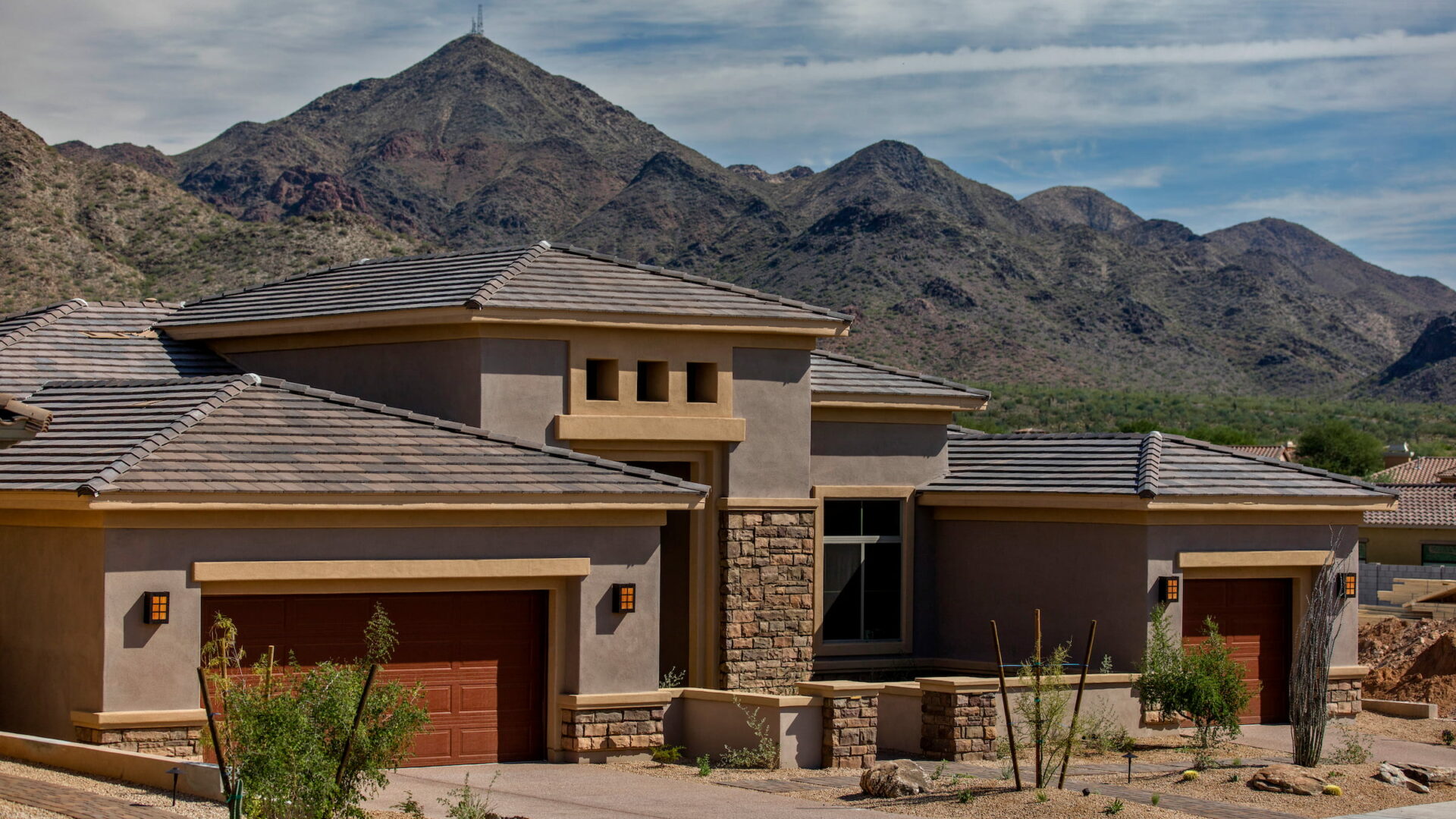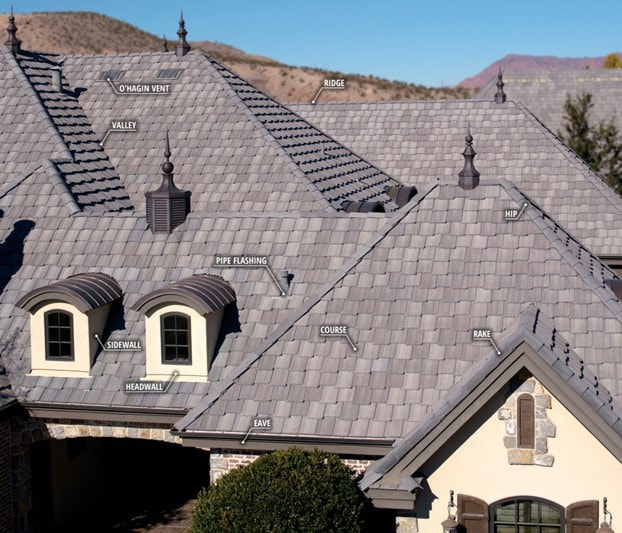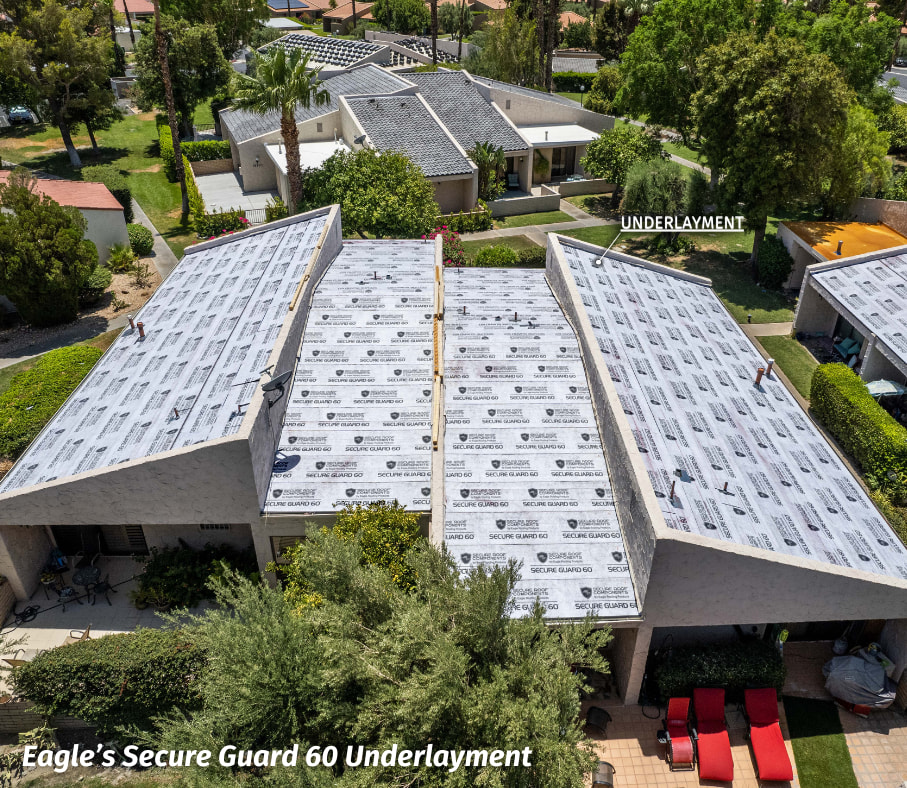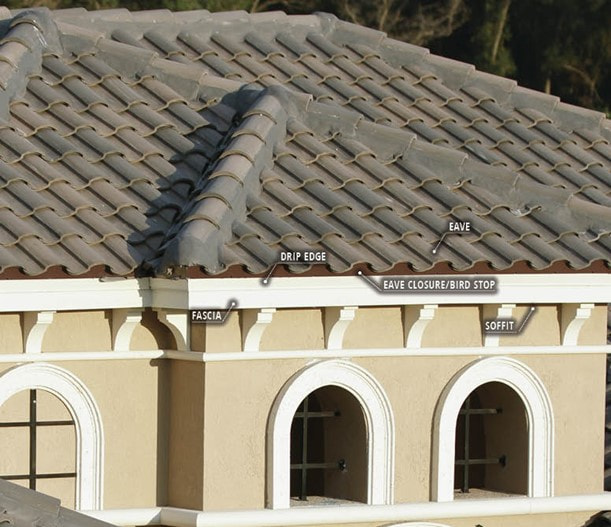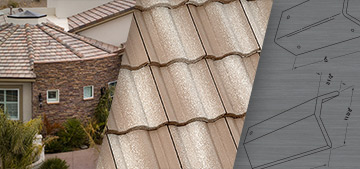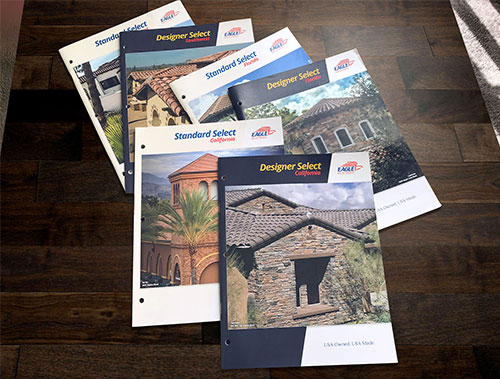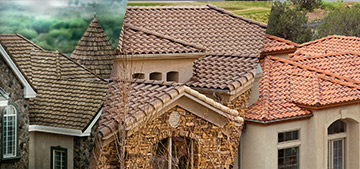If you own a residential or commercial property, the chances of replacing or repairing your roof during your lifetime are high. This is, of course, dependent on the age and type of material on your roof. Whether you need to discuss your roof’s issues with a contractor or you are reviewing a roofing estimate, having a basic understanding of roofing language is incredibly helpful. To assist you, we’ve compiled a list of common roofing terms with example imagery below.
Roof Deck: the substrate that is attached to the roof framing to which roofing materials such as concrete tiles are installed
O’Hagin Vents: generally installed near the top ridgeline of the roof, exhaust vents are designed to allow warm air to escape the attic area of the home, helping to conserve energy within the living space
Course: each row of the tile
Rake: the outer sloped edge of a roofline
Sidewall: the inner edge of the roof where the tile meets the vertical wall
Headwall: the top edge of the roof where the tile meets the vertical wall
Ridge: the top-most edge of a roof where two opposing slopes meet
Hip: the sloping ridge of a roof where two perpendicular slopes meet
Valley: the internal sloping angle of a roof where two perpendicular slopes meet
Pipe Flashing: metal sleeve and skirt that covers a pipe and its roof opening
Underlayment: a water shedding membrane that is installed over the roof deck prior to installation of the roof tiles
Eave: outer edge of roof downslope
Fascia: a decorative board concealing the outer edge of the roof rafters around the perimeter of the roof
Soffit: area between the outside wall and the fascia, often enclosed and sometimes vented
Drip Edge: perimeter metal flashing, installed to protect raw edge of the roof deck
Eave Closure/Bird Stop: material used to close the convex open below the eave course of Capistrano or Malibu tiles. Prevents intrusion under the tile by birds or other wildlife and provides proper rise for the eave course. Can be ventilated to promote air flow below the tile.
Eave Riser: material used to provide the proper rise for the eave course of tile. Usually utilized for roofs with flat tile.
The better acquainted you become with the basic parts of a roof, the easier it will be to understand and get your point across when speaking to your roofing contractor. For additional roofing terms, visit Tile Education Series: What Do Those Roofing Terms Mean?
If you have any questions about concrete roof tile or your tile roofing
needs, contact your local Eagle Account Representative today!
